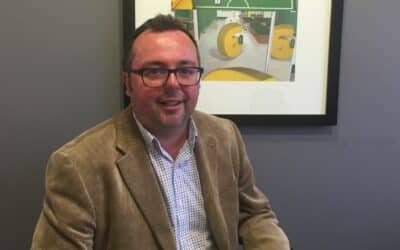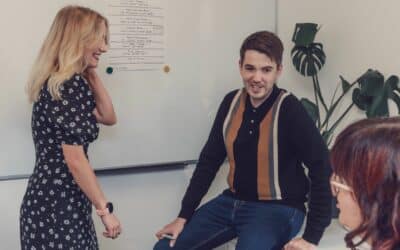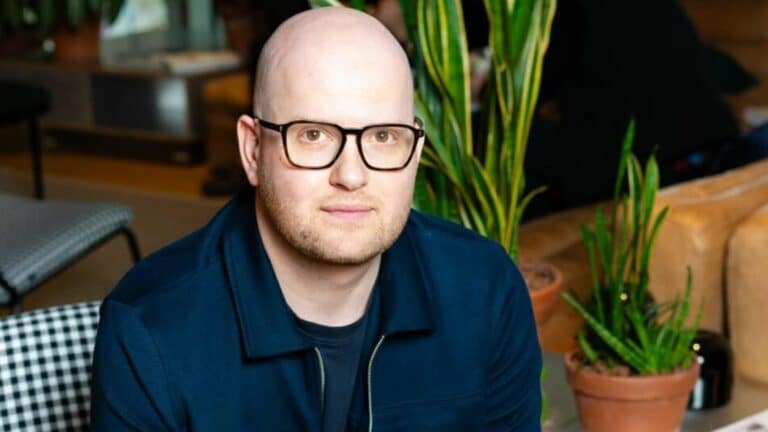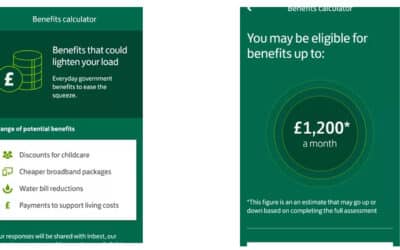Matt Bird is co-founder and CEO of Lemon, a Manchester-based fintech start-up.
The SaaS subscription management platform, tailored specifically to the needs of SMBs, recently secured £500,000 in a funding round led by SFC Capital and Pitchdrive.
Following the successful raise, Lemon will now hone in on product development, assisted by the appointment of new chief technical officer, Matt Parke, and a new content & community manager.
Whether its lucky breaks or reflecting on his best failure, Bird shares all the lessons he’s learnt across his life and career so far…
Which single daily habit or practice could you not do without?
Reluctantly, I’m going to have to be ‘one of those guys’ and mention cold plunges. It’s the productivity hack I didn’t know I needed and has honestly been a total game-changer!
What’s been your luckiest break?
It was probably when I was 20 and working on building a career in the music industry. I volunteered to work for a band at one of their shows, where I met their tour manager and the promoter. After that show, they invited me to work the rest of the tour with them. From there, I spent 18 months working with some of the largest bands in the world who were touring through the UK. It taught me so much that I didn’t realise at the time and ultimately gave me my first huge knock back when it all ended, which led to me starting my first business.
What’s your best failure?
One of my previous companies was a profound learning experience. We’d raised money, hired a team, and launched a product—then COVID hit. It taught me how to navigate challenging times and maintain optimism even when everything seems to be stacked against you. Undoubtedly, it was the toughest period of my life, and my career. It also made me question everything about that business, from the personal guarantee on a £50k loan I unwisely took out, to the ways we collected revenue to survive. I learned from these hard lessons and used the knowledge to guide me when I was building Lemon.
What is the best investment you’ve ever made, either financial or time?
Without question, a good therapist. I remember going to my first ever session, feeling like I wouldn’t be able to solve anything, and then coming out afterwards feeling as light as a cloud. Going to therapy regularly has changed the way I navigate life! It’s so useful to attend therapy when things are good as well as when they aren’t.
Which podcast or book would you recommend others to read and why?
For a podcast recommendation, I’m a big fan of ‘Fintech Insider’ by 11:FS. It’s a must-listen for anyone interested in following all the latest developments in Fintech. I was recently a guest on the show, which was quite surreal. I chatted through the main news headlines of the week with the hosts and shared some exciting updates about Lemon.
My book recommendation is The Five Dysfunctions of a Team. It’s a really short book all about startup/business team dynamics. I like it because it’s so easy to digest and full of amazing insight. In fact, I was recommended it by a CEO of a now billion-dollar company, so I would recommend it to anyone in the business world.
What one piece of advice would you give your 21-year-old self?
Back yourself from day one. I am a highly ambitious person and until probably five years ago, I was super insecure about sharing that ambition with my peers or network. I’ve really found a better work-life balance by fully trusting in myself and what I’m doing, so I would say ‘back yourself from day one’ is my biggest piece of advice.
Who or what has had the single biggest influence on your working life?
My dad, for sure. He’s someone who really influenced my work ethic and has always encouraged me to push myself and to ‘go for it’ when trying to achieve anything. He has definitely helped me make decisions regarding business. Still to this day, he’s the first person I call when something pivotal happens professionally.
Tell us something about you that would surprise people.
Believe it or not, I used to be the lead singer of a pop-rock band!
If there was one thing you could change about your career, what would it be and why?
I think I would have liked to have gotten into the technology industry a bit quicker. Initially, I built a couple of direct-to-consumer fashion brands which helped me learn the ropes of business quickly, but those fashion brands soon became what I was ‘known’ for, which never really sat comfortably with me as I didn’t have an interest in fashion at all. My real interest was, and still is in the art of building a brand, creating a world-class product, and finding customers. Now, my driving force is trying to solve big problems using technology, aligning it with my interest in finance and economics.
What does success look like to you?
I think waking up every day with a deep-rooted conviction that I’m having an impact on something is really important. Nowadays, however, having a happy and healthy family is what really matters most to me.










